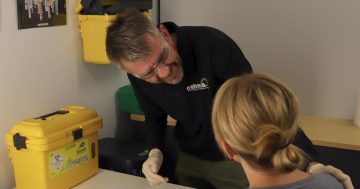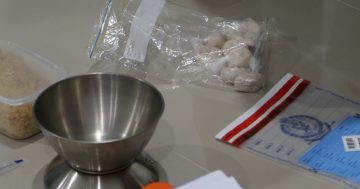
Methamphetamine abuse needs more than a punitive criminal approach. Photo: Supplied.
As a church minister I get asked about drugs more than you might expect. That’s because the Uniting Church Synod of NSW & the ACT leads the Fair Treatment campaign to change the legal systems that govern drug use and to expand health services.
In this context, the ACT Drugs of Dependence (Personal Use) Amendment Bill 2021 has been a welcome development.
The Uniting Church is not alone in its belief everyone deserves access to health services when they need it. That our laws and policies should be fair, compassionate and evidence-based. That every human being is of equal worth.
The Church is also joined by many of the view that our laws that govern non-cannabis drug use are broken. Lots of people still use currently illegal drugs. People use drugs and alcohol for a reason. Some people develop drug dependency issues. This is the real world.
When we criminalise people with health problems, they become more isolated and less likely to reach out for help. Families suffer. People don’t reach their full potential. Our First Nations community is particularly impacted due to the legacy of dispossession and trauma, for which we must all take responsibility.
I’ve seen this first-hand in the congregations for which I have provided ministry.
Many people who live in the ACT know we need new legal systems to govern drug use. They are not swayed by noisy minority opinions that don’t reflect their views. The swing against ACT Senator Zed Seselja, who campaigned hard against these laws, shows that.
The bill before the ACT Parliament is a great opportunity to get our legal systems that govern drug use right. Clearly the current bill needs amendment. There are some simple solutions we can put in place now that would allow the bill to proceed in an improved form.
First, we need to ensure our police are given a workable triage system for people caught with small amounts of illicit drugs that has a spectrum of options. This includes no further action and the provision of information to establishing connections with health and welfare services.
Second, we need to ensure the bill applies to all drugs. This is because “new” drugs are constantly being created. Plus, the more serious issues associated with the use of ice (methamphetamine) mean a health-and-welfare-oriented response (including mental health) is even more appropriate for ice than it is for cannabis. Surely, it’s a no-brainer that the more a person needs access to health services the more we should facilitate that.
Third, we need an independent, robust and publicly available evaluation of the new system at regular intervals.
Finally, we need to double the investment in health and welfare responses for people who use drugs. Turning away 400,000 people nationally from drug health services every year due to under-investment is a national shame.
The ACT is again leading the country on reform and showing it is not afraid to tackle the important issues. Let’s get it right.
Reverend Andrew Smith is a Uniting Church minister in the Canberra Region Presbytery.





















